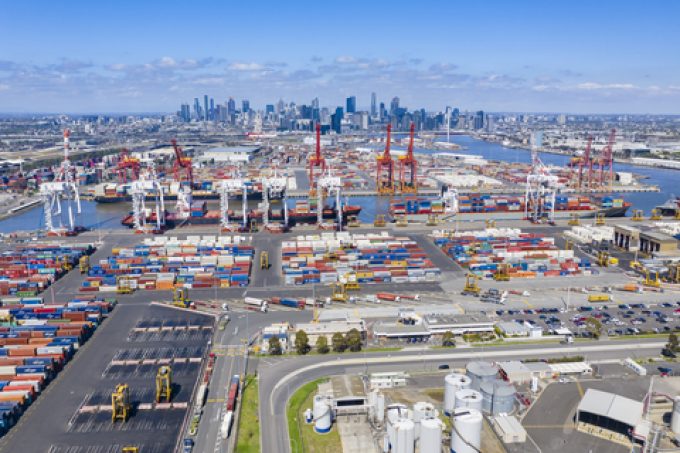Driver shortage down under – hit by a bus...
…if it’s running at all
TFII: SOLID AS USUALMAERSK: WEAKENINGF: FALLING OFF A CLIFFAAPL: 'BOTTLENECK IN MAINLAND CHINA'AAPL: CHINA TRENDSDHL: GROWTH CAPEXR: ANOTHER SOLID DELIVERYMFT: HERE COMES THE FALLDSV: LOOK AT SCHENKER PERFORMANCEUPS: A WAVE OF DOWNGRADES DSV: BARGAIN BINKNX: EARNINGS OUTODFL: RISING AND FALLING AND THEN RISING
TFII: SOLID AS USUALMAERSK: WEAKENINGF: FALLING OFF A CLIFFAAPL: 'BOTTLENECK IN MAINLAND CHINA'AAPL: CHINA TRENDSDHL: GROWTH CAPEXR: ANOTHER SOLID DELIVERYMFT: HERE COMES THE FALLDSV: LOOK AT SCHENKER PERFORMANCEUPS: A WAVE OF DOWNGRADES DSV: BARGAIN BINKNX: EARNINGS OUTODFL: RISING AND FALLING AND THEN RISING

The extraordinary lockdown measures imposed on the Australian state of Victoria are threatening to disrupt supply chains.
The stage four Covid-19 restrictions came into effect today in Melbourne, for the next six weeks, and include laws restricting individual movement, as well as the shuttering of most businesses and industries not deemed essential.
Transport and logistics is in a grey area. Warehousing and distribution centres, including those supplying groceries to supermarkets and providing last-mile deliveries, will be limited to two-thirds of the usual workforce onsite at one time.
This has prompted concerns over the industry’s ability to meet delivery requirements at a time when demand has skyrocketed 40%, due to the lockdown.
Peter Anderson, CEO of the Victorian Transport Association, said: “We cannot have a situation where supermarket distribution centres have their output reduced by a third because of workforce reductions. It will translate into food and grocery shortages in the supply chain.
“We’re advocating the removal of this requirement for supermarket DCs, so people can have confidence shelves won’t be unnecessarily depleted.
“Victoria is in crisis and, as we enter unprecedented restrictions on our personal freedoms and our ability to work, it is essential we come together to understand the challenges we face, and work in unison to stop the spread of coronavirus and the havoc it is wreaking across our state.”
The Freight & Trade Alliance (F&TA) has also been lobbying the Victorian government, to clarify whether importers are permitted to receive containerised cargo.
“It is critical that all imports are allowed to flow, otherwise we will have an estimated 300,000 containers over the next six weeks congesting our wharves and impeding the delivery of all goods, including food, PPE and medical,” warned Paul Zalai, the F&TA’s director and co-founder.
“We also need these import containers to be unpacked and made available for our exporters, in particular to support a struggling agricultural sector expecting substantial crops this spring and desperate to reach overseas markets.”
The port of Melbourne, Australia’s largest container gateway, said it would be operating as usual amid the new restrictions, but complicating matters are the ongoing strikes by the Maritime Union of Australia at DP World’s terminal.
Airside, Qantas Freight was forced to close its Melbourne terminals this week in response to advice from the Victoria Department of Health and Human Services.
“While we work to reopen our facilities as soon as possible, a small number of employees have been cleared to return to work to support a strictly limited domestic freighter network,” Qantas said today.
Australia’s air cargo industry has been suffering a capacity crisis since the country’s border closure and subsequent grounding of passenger fleets wiped out some 90% of belly space, prompting the government to subsidise additional freighter flights.
Comment on this article